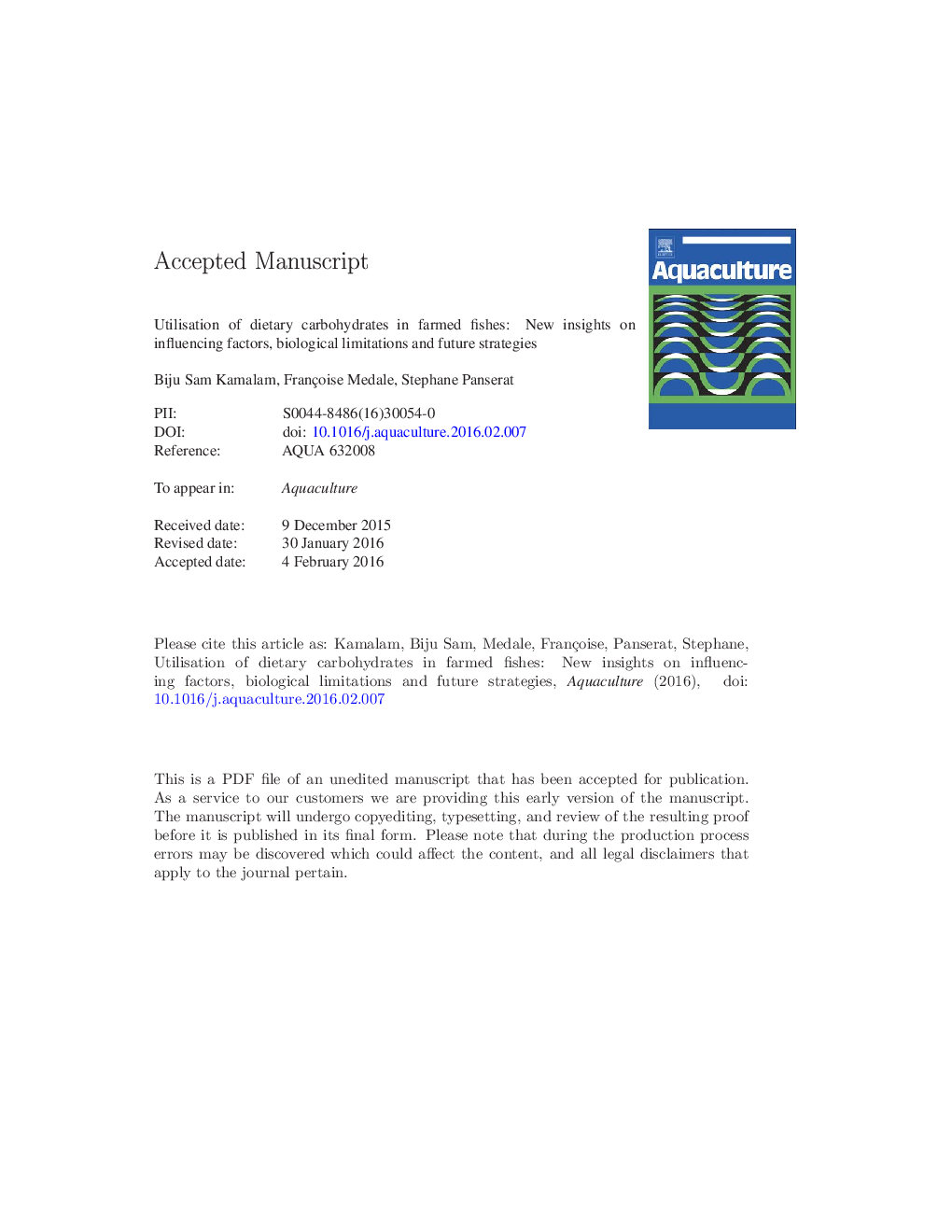| Article ID | Journal | Published Year | Pages | File Type |
|---|---|---|---|---|
| 5539511 | Aquaculture | 2017 | 96 Pages |
Abstract
Carbohydrates are the most abundant class of energy yielding nutrients which is economically indispensable in commercial fish feed formulations. But, the ability of farmed fishes to use energy from digestible forms of carbohydrates contentiously differs based on their feeding habits, anatomical-physiological features and rearing conditions. Carnivorous fishes, in particular, are considered to be poor in utilising dietary carbohydrates mainly due to their low intestinal glucose uptake rates and slow blood glucose clearance. Hence, they have been the subject of most studies focusing on carbohydrate nutrition and metabolism. The findings overwhelmingly indicate the presence of almost all the essential biological elements, but with differences in the regulatory mechanism. On the other hand, the changing trends in fish feed formulation with progressively higher inclusion levels of plant ingredients will invariably introduce more carbohydrates, necessitating coping strategies in fish. In this aquaculture oriented context, our review intends to put together pieces of the puzzle of dietary carbohydrate utilisation in fish based on new insights gained with respect to 1) the various biological, nutritional and environmental factors influencing carbohydrate use such as feeding habit based evolutionary hardwiring, genotypic differences, sustained swimming exercise, influence of other dietary components, carbohydrate source characteristics, gelatinization, meal timing and changes in thermal regime 2) the inherently limiting steps beginning with low adaptability in digestive and glucose transport capacities, poor glucose homeostasis, complex hormonal regulation, distinctive glucose, energy and nutrient sensing mechanisms, regulatory deficits in hepatic intermediary metabolism and weak glucose utilization in peripheral tissues and 3) promising future approaches to augment carbohydrate use in fish such as nutritional programming in early life, genetic selection, supplementation of exogenous enzymes, fine tuning dietary macronutrient balance and promoting beneficial host-microbe interactions in the digestive tract.
Related Topics
Life Sciences
Agricultural and Biological Sciences
Aquatic Science
Authors
Biju Sam Kamalam, Françoise Medale, Stephane Panserat,
